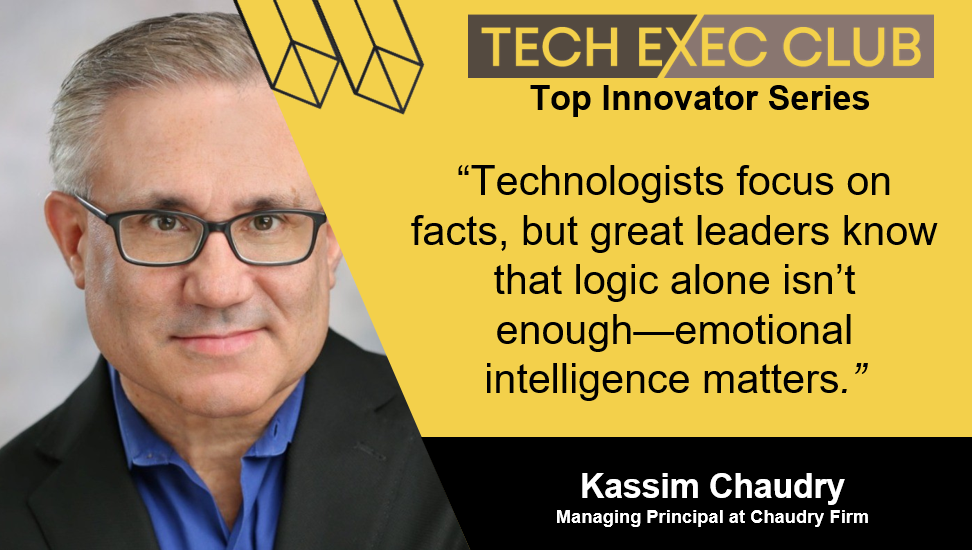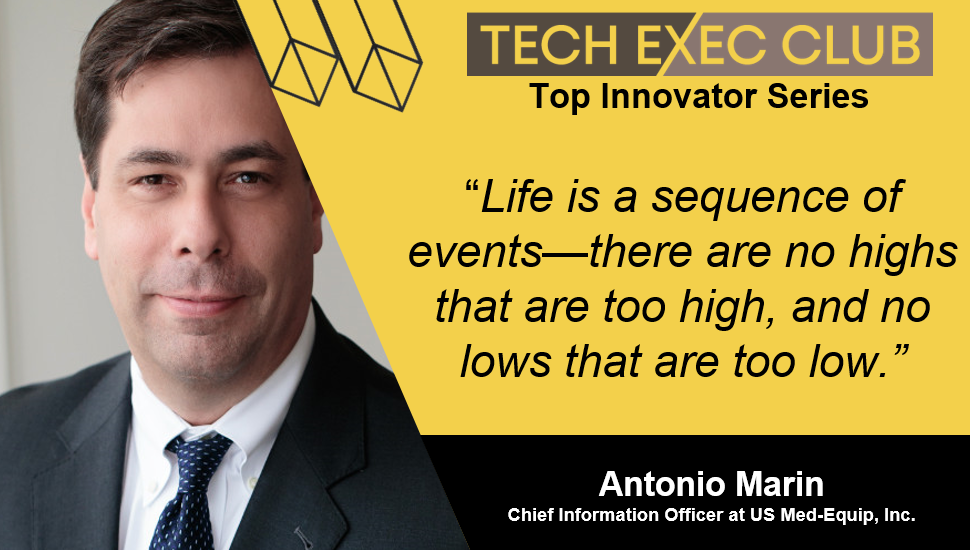In a world driven by quarterly returns and relentless disruption, it’s rare to encounter a leader whose strength lies in strategy and reflection. Abhishek Sinha—CEO and CIO of Nelumbium Capital—isn’t your typical tech or finance executive. He’s an innovator, yes, a technologist. But at his core, Abhishek is a philosopher of leadership who believes in the power of starting fresh every morning, the humility of peer learning, and the discipline of data-driven decisions.
At Nelumbium Capital, Abhishek leads a cutting-edge platform that leverages AI to transform asset management. But what’s more striking than the algorithms he deploys is the thoughtfulness he brings to leading people, building culture, and navigating uncertainty. In this candid conversation, Abhishek shares the foundational principles that have shaped his leadership—from lessons in self-reliance at a competitive boarding school to navigating Rejection in the unpredictable startup world.
What follows is a conversation that’s part mentorship, part masterclass—packed with reflections on growth, resilience, and the understated art of building something meaningful in a world that demands speed. Whether you’re a startup founder, a seasoned executive, or just someone hungry to lead with more intention, Abhishek’s journey offers rare insight into what it means to lead with clarity, humility, and vision in the age of AI.
Peer Learning and Self-Reliance as Foundational Leadership Traits
Abhishek Sinha’s leadership journey began long before his title included “CEO” or “CIO.” It started in a remote boarding school where he was among only 100 students selected from over 30,000 applicants. “Peer learning was everything,” he recalls. “I learned more from my classmates than anyone else.” This early environment shaped a deep-seated belief in learning from formal instruction and collaborative experiences.
In parallel, boarding school taught him self-reliance. From managing day-to-day responsibilities to leading small teams during competitions, Abhishek developed the muscle memory for leadership through action, not theory. One early memory that stands out was leading a poetry team in an inter-house competition. It wasn’t about being in a traditional authority role but rather about motivating, organizing, and elevating others around a shared goal.
These formative lessons set the foundation for his leadership style today—highly collaborative, deeply self-driven, and built on a belief that everyone, no matter their role, can lead from where they are. Abhishek tells his team, “Always think of your position not as a person but as a function in the system. Your sign-off is a stamp of assurance.” It’s a principle that creates ownership and pride in every role, fostering a culture where leadership is distributed, not centralized.
The Power of Normalizing Rejection and Learning from a Diverse Peer Group
For many high-achievers, rejection stings. But for Abhishek, one of the most significant mindset shifts came from a single phrase: “normalize rejection.” In the unpredictable world of startups, where “no” often outnumbers “yes,” that advice became his shield. “As an employee, you have a nearly 100% success rate. Clients come to you. You perform. You win. But in entrepreneurship, it’s reversed. You need to reframe failure—not as a dead end, but as a ‘not right now.'”
Abhishek also passionately spoke about the value of assembling a thoughtful, diverse peer group. This isn’t just a list of contacts or industry leaders—it’s a curated mix of thinkers, doers, and learners that fuel continuous growth. He follows the idea that “you are the average of the five people you talk to the most.” For him, that includes ambitious young graduates, leading academics, startup founders, and sometimes even regulators.
“I look for people who are just ahead of me—not just in money or power, but in motivation, mindset, or learning speed. And I try to contribute value in return—through my experience, ideas, or support.” He likens this to standing on the shoulders of giants while being a source of strength for others. In his view, authentic peer learning is a mutual exchange of growth, curiosity, and humility.
Staying Grounded Through Purpose, Humility, and Customer-Centric Thinking
As the CEO of a firm that blends AI with asset management, Abhishek operates in one of the most fast-moving and high-stakes sectors. But at the core of his approach is something refreshingly human: respect. “No matter how successful we get, I want to remain deeply respectful of people—of my team, my clients, and anyone I interact with.”
Abhishek makes a deliberate effort to lead with humility. He shared the importance of not allowing success—or the illusion of control—to erode empathy. “Absolute power can corrupt. I remind myself that what got me here is not what will keep me here. People follow you because of how you treat them, not just what you’ve built.”
He’s particularly committed to walking in his clients’ shoes. His goal? To make them feel like his firm is an extension of their team—a partner in their success. “You’re not just solving their problems—you’re anticipating them, evolving with them, becoming their research lab,” he said.
This philosophy has become his leadership north star: lead with empathy, stay customer-obsessed, and never lose touch with the mission. It’s a mindset that keeps his ego in check and his decision-making anchored in service.
The Continuous Challenge of Staying Current in a Rapidly Changing Tech Landscape
In the tech world, staying still is falling behind. For Abhishek, staying current isn’t just a professional requirement—it’s a personal discipline. “Every year, there’s something new. AI, GenAI, quantum computing… If you’re not evolving, you’re obsolete.”
To keep pace, Abhishek builds time into his schedule for structured learning. He connects with professors, participates in academic sessions, and regularly attends innovation conferences. “I never finished my PhD,” he admits with a smile, “but I learn from PhDs every week.”
Interestingly, one of his most significant sources of learning comes from juniors on his team. “You must be humble enough to learn from those younger than you. Their ability to absorb, test, and iterate at speed is phenomenal.” In a world where technology moves at breakneck speed, agility is king—and often, younger minds are wired for that.
Abhishek also cautions against assuming that tools like GenAI will do everything. “You still need humans. Everyone who has coded knows that integrating tools takes real skill. We need experienced leaders who stay curious, hands-on, and current.”
In his eyes, the real competitive advantage is not intelligence or funding—it’s the willingness to keep learning.
Vision for the Future: Building with Purpose and Leading with Respect
Abhishek doesn’t speak in titles or org charts when asked about the future. His vision is grounded in impact: “In five years, I want to be the kind of leader who stays respectful, leads with humility, and never stops creating things that matter.”
He draws inspiration from many sources—his mother, who inspired the name of his company, and Steve Jobs’ famous advice to “connect the dots looking backward.” He aims to remain helpful to students, customers, and the broader community.
“I see leadership like painting,” he says. “One painting may be done, but there’s always another canvas waiting. And maybe that next creation is even more meaningful.”
At the heart of this vision is a commitment to continual self-reflection. Abhishek knows that with more success comes more temptation to lose touch with the fundamentals: purpose, respect, and service. He plans to scale without losing his soul—to grow a company that builds lasting solutions while nurturing the people behind them.
It’s a rare ambition in the tech world: not just to win but to uplift, not just to lead but to serve.
Here are the top takeaways from Abhishek’s experience that you can implement right away to grow your impact as a leader, technologist, or entrepreneur:
1. Build a Circle That Challenges and Elevates You: Surround yourself with a mix of thinkers: young minds with fresh energy, seasoned experts with wisdom, and peers who push you intellectually. Be intentional. Seek out those who are not just more innovative but also more current in their thinking. Think about “peer learning” – not just mentorship but mutual growth.
2. Normalize Rejection – and Keep Moving: Understand that Rejection isn’t failure; it’s information. Train yourself to hear “no” as “not yet.” Abhishek credits this mental shift as one of the most significant turning points in his entrepreneurial resilience.
3. Treat Every Role Like a Leadership Position: No matter your title, act like a CEO of your responsibilities. Think systemically: How does your contribution fit into the larger mission? Offer your “seal of assurance” in everything you touch. Own it.
4. Stay Current—Continuously Learn: The most significant risk in tech leadership is becoming outdated. Keep up with emerging trends like AI, generative models, regulatory changes, and tech stack updates. Read whitepapers, join university forums, attend conferences, and learn from younger teammates.
5. Lead with Respect and Empathy: Avoid “power traps” as you rise. Leadership is about enabling others, not asserting dominance. Maintain a flat organizational mindset where voices are heard and people are treated with dignity. Feedback should be constructive, not performative.
6. Keep Your Thinking Flexible: Balance perseverance with adaptability. Leadership requires course correction, not stubbornness. Know when to stick to your vision—and when to evolve with reality.
7. Give Back and Inspire the Next Generation: Abhishek’s long-term goal is rooted in impact—empowering others, especially students and aspiring tech leaders. Ask yourself: How are you investing in others, not just yourself?
From a top-ranking boarding school to founding Nelumbium Capital, Abhishek Sinha’s journey reads like a masterclass in intellectual curiosity, emotional intelligence, and principled leadership.
What makes his story genuinely compelling is not just his mastery of AI-driven asset management or his impressive academic pedigree. His consistent ability to stay grounded in human values: empathy, learning, and contribution. Whether navigating the high-stakes world of finance, listening to professors share the future of machine learning, or drawing inspiration from his mother, Abhishek shows us that outstanding leadership begins with asking the right questions—and never assuming we already have all the answers.
His story reminds us that the future belongs to those who are willing to evolve—leaders who can combine resilience with reflection, ambition with empathy, and technical excellence with a deep understanding of people.
As Abhishek transitions from building products to building impact, his vision for a better, more connected tech ecosystem is not just aspirational—it’s contagious.
In a world overwhelmed with noise, he leads with clarity. He focuses on long-term value in a market that often rewards short-term wins. And in a time when technology moves faster than ever, he stays grounded by learning from the youngest minds around him. Abhishek Sinha isn’t just building a more brilliant asset management platform. He’s crafting a blueprint for what modern tech leadership can—and should—look like.
Want to hear Abhishek Sinha’s insights firsthand? Watch the full, live podcast interview [click here]





